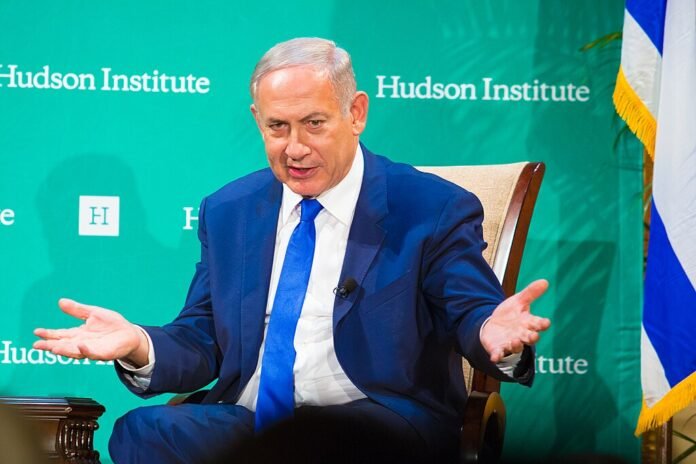Hearings cancelled after Trump calls trial a ‘witch hunt’ and Mossad warns of national security risk
Israeli Prime Minister Benjamin Netanyahu’s long-running corruption trial has been abruptly paused this week, as the Jerusalem District Court accepted his request for delay on the grounds of national security. The decision, disclosed late Sunday, follows high-level warnings from Israel’s top intelligence chiefs—and a remarkable public intervention from US President Donald Trump.
In a statement published online by Netanyahu’s Likud party, the court confirmed it would cancel this week’s hearings, citing classified explanations provided by Netanyahu himself, Mossad director David Barnea, and the head of Israeli military intelligence, Aharon Haliva.
The court said the officials’ arguments justified the prime minister’s claim that his full attention was required for pressing diplomatic and security concerns, especially in light of the fragile ceasefire with Iran and the ongoing hostage crisis in Gaza.
The dramatic development comes just days after Trump publicly urged Israeli authorities to throw out the case. Writing on social media, the US president branded the trial a “witch hunt” and called for it to be “CANCELLED, IMMEDIATELY,” or for Netanyahu to receive a pardon. Trump warned that the legal proceedings could compromise Netanyahu’s ability to lead sensitive negotiations with Hamas and Iran.
Netanyahu responded with gratitude, posting a thank-you message to Trump on X (formerly Twitter), signalling appreciation for the American leader’s vocal support.
The Israeli prime minister was indicted in 2019 on charges of bribery, fraud, and breach of trust—accusations he continues to vehemently deny. Prosecutors allege that Netanyahu and his wife, Sara, accepted over $260,000 worth of luxury goods, including cigars, champagne, and jewellery, from wealthy associates in exchange for political favours. Other charges accuse him of attempting to secure favourable media coverage from two major Israeli outlets in return for regulatory concessions.
Embed from Getty ImagesSince the trial began in May 2020, Netanyahu has repeatedly sought delays. His legal team’s latest appeal to postpone testimony for at least two weeks cited “urgent national needs,” including war-time security planning and ceasefire talks. The initial request was denied. However, following new testimonies from security leaders, the court reversed course, acknowledging that the prime minister must “devote all his time and energy” to the crisis.
The ruling sparked backlash from opposition figures. Yair Lapid, leader of the opposition, condemned Trump’s interference: “A US president should not meddle in the judicial proceedings of an independent nation.”
Despite Trump’s claim that Netanyahu is negotiating a ceasefire deal with Hamas, no official confirmation or details have emerged. Israeli officials remain sceptical about any imminent breakthrough. On Friday, however, Trump told reporters he believed a deal was close.
A spokesperson for Israel’s prosecution declined to comment on the court’s decision or Trump’s remarks.
Critics argue that the prime minister is using the war and international pressure as a political shield to delay his legal reckoning. Netanyahu’s hold on power has grown increasingly contentious, especially as Israel’s war with Iran and the ongoing Gaza hostilities stretch both public patience and institutional norms.
While the court insists the postponement is temporary, it remains unclear when proceedings will resume. As the country battles simultaneous diplomatic, military, and political fires, the trial of its embattled leader hangs in limbo—shadowed by powerful allies, security anxieties, and growing domestic unrest.
